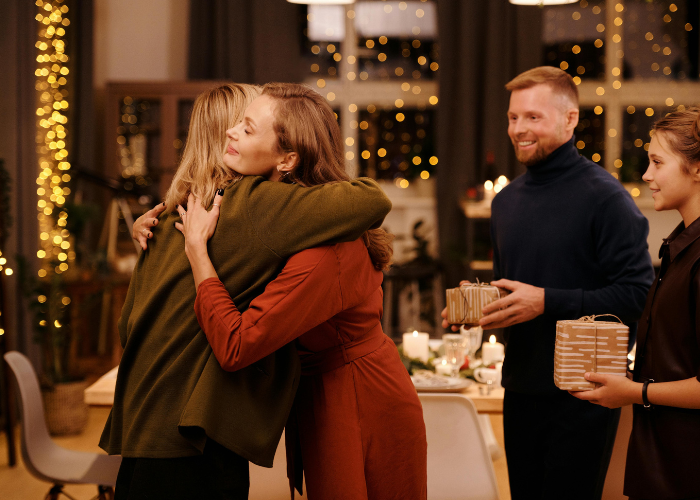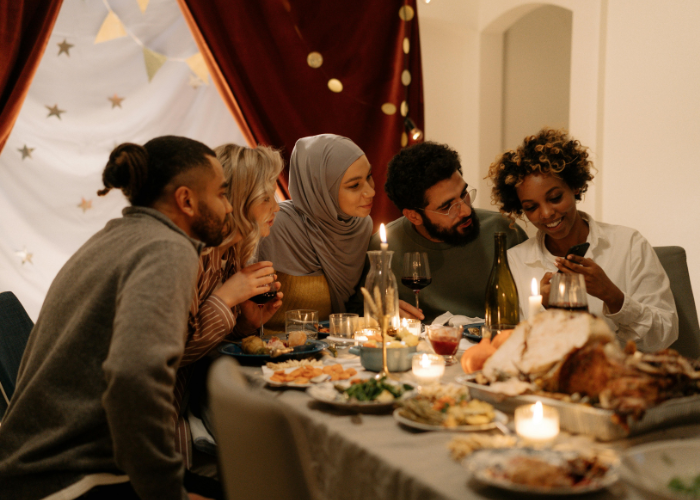Why Create a Closing Ceremony?

Bringing Comfort, Peace, and Closure: Honouring Loved Ones in Spirit and Memory.
Our Closing Ceremonies and funerals provide a structured, meaningful way to acknowledge the impact the elder has had on each family member. It’s an opportunity to share memories, honour accomplishments, and express gratitude in a way that preserves the elder’s unique contributions. This intentional gathering helps family members process their emotions, remember the special qualities of the elder, and find support from others who share those memories.
Moreover, a closing ceremony fosters intergenerational connection, reminding younger family members of their heritage and inspiring them to live out the values and traditions passed down to them. The ceremony can be a powerful moment to teach family values, build resilience, and strengthen identity. In Indigenous cultures, where oral storytelling and cultural rituals are highly regarded, these moments become touchstones for cultural continuity, helping families hold onto their unique traditions..
Planning the Ceremony
To plan a meaningful closing ceremony, consider including elements that reflect your elder’s personality, passions, and legacy. Begin by gathering family and close friends to discuss what aspects of their life had the most impact. Remember that a closing ceremony can include anything that holds personal or cultural significance:

01
Personal Tributes and Cultural Traditions:
Gather stories from family, friends, and community members that capture the heart of your elder’s life, from lighthearted memories to meaningful lessons. Create a space during the ceremony for sharing these stories or compile them into a keepsake book for the family. To honor cultural heritage, consider incorporating rituals from your family’s traditions, such as storytelling, music, songs, or prayers from Indigenous or Pacific Islander customs. Together, these personal and cultural elements offer a rich tribute that celebrates your elder’s legacy and deepens connections across generations.
02
Storytelling with keepsakes:
Personalise the Closing Ceremony by gathering items that reflect your elder’s life and passions, such as photographs, awards, favourite books, or handmade crafts. If your elder had a special talent, like cooking or weaving, showcasing examples of their work adds a personal, memorable touch that reflects their unique legacy.


03
Community Gathering and Shared Stories:
Engage family members in meaningful activities that honor your elder’s memory, such as planting a tree, creating a memory box, or preparing a meal with their favorite dishes. These activities provide an opportunity for family members to bond and process emotions together. Additionally, invite loved ones to write letters of gratitude, sharing the impact your elder had on their lives. These letters can be read during the ceremony or compiled into a keepsake book as a lasting tribute to the love and legacy they inspired.
Honouring Elders as a Family Value
The Closing Ceremony is just the beginning of preserving your elder’s legacy. After the ceremony, families often wish to create ways to continue honouring their loved one’s memory, such as through memorial projects, scholarships, or family gatherings that serve as ongoing tributes. One meaningful approach is to establish a family tradition that embodies a value or practice important to your elder, like a yearly gathering, community service day, or regular storytelling event where their wisdom and values are shared with younger generations.
Documenting the closing ceremony is a powerful way to create a lasting legacy for families. Recording the ceremony, along with photos and videos, ensures that family members—especially younger generations—can revisit these treasured memories. A dedicated, secure online space allows families to store stories, images, and videos, creating a private, accessible memory hub. This space offers family members the opportunity to reconnect with their elder’s legacy, reliving special moments and sharing them within the family circle. Preserving these memories not only honours the elder’s life but also strengthens the family’s bond across generations.
Embracing a closing ceremony is a testament to a family’s commitment to honouring and respecting its elders, a tradition deeply valued in Indigenous and Pacific Island cultures. Through ceremonies, storytelling, and memory preservation, families actively build a culture of respect and reverence for their elders. These gatherings offer a profound sense of connection and peace, passing down stories and values that form the family’s foundation. By thoughtfully curating rituals and memories, families celebrate the elder’s journey, ensuring their legacy lives on in the hearts of future generations.
